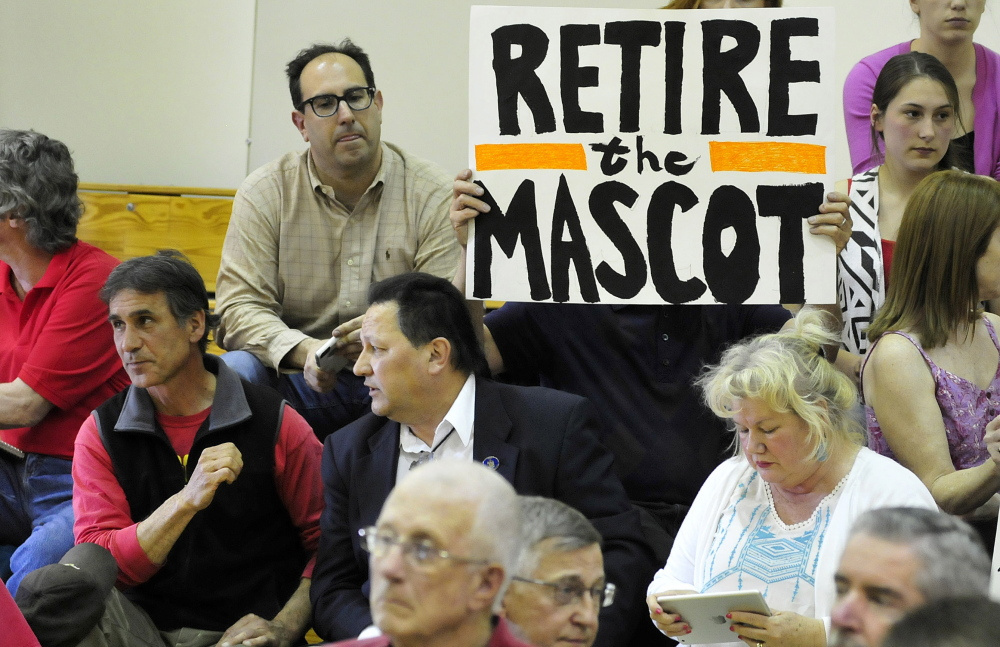It’s been nearly four years since the Skowhegan-based school district refused to change its “Indians” nickname, going against widespread requests for its removal. As demonstrated by a new hearing on the matter last week, not much has changed.
The people who want the mascot dropped — a list that now includes everyone from some Skowhegan residents and tribal leaders to health professionals, civil rights groups and the state’s new governor — say the nickname is disrespectful to American Indians and ignorant of history.
It’s a plea that has been taken at face value throughout the state, as one by one schools using Native American nicknames and imagery have reversed course — without losing an iota of community pride or identity.
SINCERE TESTIMONY
But in Skowhegan, defenders of the mascot have remained unmoved. If anything, they have dug in further as they have become the only community left in the state using such a nickname.
They’ve said the mascot is meant to honor the town’s original inhabitants and celebrate its history.
But that is not how the nickname is being received by those who matter. The only way to continue believing that line of thinking is to dismiss the sincere testimony of actual American Indians, and to reject the conclusion of the American Psychological Association and the U.S. Commission on Civil Rights, among others, that such mascots are harmful.
One also has to reject the facts of history in favor of the sanitized version taught to schoolchildren for too long. If not, it would be clear they shouldn’t be dictating to American Indians how they should be honored.
Even the claim by the Skowhegan Indian Pride group that the name celebrates the “honor, integrity, bravery” of Native Americans is a caricature rooted in racism — the notion of the “noble savage.”
We’ve seen this elsewhere in politics. It’s a trick our brain pulls when we’ve picked a side in a contentious debate. It allows to us to hold on to a belief, even when evidence stacks up against us, by deciding that the other side has ulterior motives — they want money, or attention, or just to tell someone else what to do.
Ultimately, it allows people to reject reason. It’s a lot like the “fight” in the “fight-or-flight” response — protecting your own becomes the only consideration.
As one resident said at last week’s forum, “I’m tired of people from other towns, states or countries telling me what words I can use.”
DO THE RIGHT THING
And as far as that goes, they are right. The school’s mascot is entirely up to the school district — not the Penobscots or the NAACP, but only the school board members and the people who elect them.
In deciding how to act following last week’s forum, board and community members in favor of keeping the mascot should take a step back and ask what they are fighting for.
If the intent is to honor American Indians, how else are they now working toward that goal? What are you doing to make American Indians more than just names on a sign or a black-and-orange sweatshirt?
And if the intent is to preserve history, what are you doing to make sure residents really know that history? How many “Indians” at the high school know anything of the state’s tribes, their history and stories, successes and tragedies?
The fact is, there are many ways a community can honor its history without diminishing the people who made that history. There are a lot of school nicknames that can instill pride without dividing the community and insulting some of its members.
Skowhegan should find that way forward together. Townspeople against changing the mascot have proved well enough that the decision is theirs to make. Now it’s time to do the right thing.
Send questions/comments to the editors.


